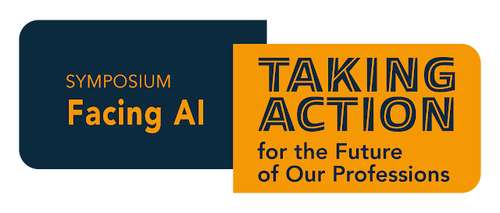What's New > Manifesto for the Protection of Authentic Creation
 |
The development of AI in culture must be done with the community, for the community, and in a careful, reasonable, and well-thought-out manner, because art is Human!
MANIFESTO FOR THE PROTECTION OF AUTHENTIC CREATION
(Through the Responsible and Thoughtful Development of AI)
Montreal, June 9, 2025
On Monday, June 9, 2025, members of six Quebec unions representing more than 25,000 artists, creators, performers, craftspeople, and technicians in the audiovisual and music industries came together to release their "Manifesto for the Protection of Authentic Creation." The statement outlines the core principles they believe must guide the responsible and cautious development of AI tools, along with their demands and recommendations addressed to provincial and federal policymakers, as well as key players across the industry.
Preamble
Generative AI is steadily making its way into our lives, conversations, professions, and media. It comes with countless promises of a better tomorrow with greater efficiency, enhanced creativity, and higher profitability. It is presented as an unstoppable “revolution”, a “train you have to catch” or risk being left behind in the past.
Yet every day, creators’ works are appropriated to train AI systems. At every moment, images, texts, voices, and compositions are used without consent, transparency nor compensation—violating both fundamental ethical values and the most basic legal frameworks.
Have we, as a society, decided that none of this has value anymore? That artists and creators can be exploited to enrich multinational corporations profiting from their work?
Have we, as a society, accepted as a modern inevitability that our working conditions be trampled on in the name of innovation?
Have we, as a society, chosen to risk seeing the sovereignty of our distinct culture threatened by tech enthusiasts obsessed with a profit-driven vision of creation?
Have we really agreed to all this?
In the arts and culture sector, we say no—loud and clear.
The development of generative AI in the cultural sector must be done with artists, for artists, and in a way that is cautious, reasonable, and well thought out.

